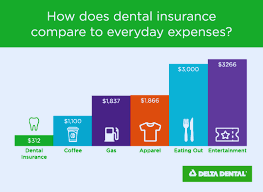Introduction:
As we age, planning for the future becomes increasingly important, especially when it comes to financial security and protecting our loved ones. Life insurance can play a crucial role in this planning process, particularly for seniors over 65. In this guide, we’ll explore the types of life insurance available, the benefits of having a policy, and tips for choosing the right coverage.
Why Life Insurance Matters for Seniors Over 65
- Financial Security for Loved Ones: Life insurance provides a financial safety net for your beneficiaries. It can help cover funeral costs, medical bills, and other debts, ensuring that your loved ones are not burdened financially after your passing.
- Peace of Mind: Knowing that you have a life insurance policy in place can provide peace of mind, allowing you to enjoy your golden years without constant worry about financial matters.
- Estate Planning: Life insurance can be an effective tool for estate planning. It can help cover estate taxes and ensure that your heirs receive their inheritance without financial complications.
Types of Life Insurance for Seniors
When considering life insurance, seniors have several options. Here are the most common types:
1. Term Life Insurance
- Overview: Provides coverage for a specific period (e.g., 10, 20, or 30 years).
- Pros: Generally more affordable, straightforward, and can be used to cover specific financial obligations.
- Cons: If you outlive the term, the policy may expire without value.
2. Whole Life Insurance
- Overview: Offers coverage for your entire lifetime and includes a cash value component that grows over time.
- Pros: Permanent coverage and can be a valuable asset for retirement.
- Cons: Higher premiums compared to term life insurance.
3. Guaranteed Issue Life Insurance
- Overview: A type of whole life insurance that requires no medical exam.
- Pros: Available to seniors regardless of health status, making it an excellent option for those with pre-existing conditions.
- Cons: Higher premiums and lower coverage amounts, usually with a waiting period for full benefits.
4. Final Expense Insurance
- Overview: Specifically designed to cover funeral and burial costs.
- Pros: Smaller face amounts, typically easier to qualify for, and provides peace of mind regarding end-of-life expenses.
- Cons: Limited coverage amount may not be sufficient for larger financial obligations.
How to Choose the Right Life Insurance Policy
- Assess Your Needs: Consider your financial situation, existing debts, and the needs of your beneficiaries. Determine how much coverage you need and for how long.
- Compare Policies: Shop around and compare quotes from different insurers. Look at both premiums and coverage amounts to find the best fit for your budget.
- Check the Insurer’s Reputation: Research the insurance company’s financial stability and customer reviews. A reliable insurer should have a good track record for paying claims.
- Consult a Professional: If you’re unsure about your options, consider speaking with a financial advisor or insurance agent who specializes in senior policies. They can help you navigate the choices and find the best plan for your needs.
- Review Regularly: Life circumstances change, so it’s essential to review your life insurance policy periodically. Update your coverage as needed to reflect changes in your life situation or financial goals.
Conclusion
Life insurance can be an invaluable asset for seniors over 65, providing financial security and peace of mind for both you and your loved ones. Whether you choose term life, whole life, guaranteed issue, or final expense insurance, it’s crucial to assess your needs and shop wisely. By understanding your options and consulting with professionals, you can make an informed decision that ensures your family is protected no matter what the future holds.
Investing in life insurance is a thoughtful step toward securing your legacy and supporting your loved ones during challenging times. Don’t wait—start exploring your options today!








